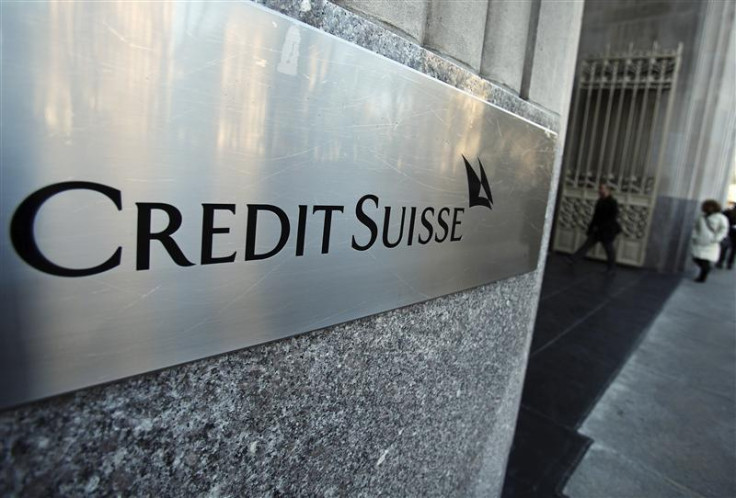Credit Suisse Unveils Capital Raising and Cost Cutting Plans

Credit Suisse has unveiled plans to boost its capital base by 15.3bn Swiss francs (£10bn), by issuing debt, selling assets and cutting costs.
In its second quarter earnings report, the Swiss bank revealed that it was taking decisive measures to "improve efficiency and to strengthen its capital position in preparation for Basel III regulatory requirements".
"Unquestioned capital strength is of paramount importance to the Group," said Urs Rohner, Chairman of the Board of Directors at Credit Suisse. "Given the current environment, we decided to accelerate the implementation of our capital plans in a manner which eliminates any doubts raised by the 2012 SNB Financial Stability Report."
Credit Suisse said its immediate steps include issuing 3.8bn (£2.5bn) Swiss francs in convertible bonds to existing investors such as Qatar and the Olayan Group, as well as new investors like Singapore-based Temasek.
The bank will also bring forward plans by one year, to exchange of 1.7bn Swiss francs of hybrid securities into contingent convertible notes (CoCos) to big investors. It will also be selling real estate assets and it has asked staff to exchange future cash bonuses into shares and offload illiquid private equity investments.
The statement comes after the Swiss National Bank (SNB) put pressure on Credit Suisse to bolster its capital base by halting dividends and issuing shares in order to safeguard against the risk of an escalation of the Eurozone banking crisis last month.
At the time, the Swiss bank's share price fell by over 11 percent at one stage.
In the central bank's annual financial stability report, SNB warned that "for Credit Suisse, given the low starting point and the risks in the environment, it is essential that it already substantially expand its loss-absorbing capital base during the current year."
The group added that "apart from the planned reduction of risk, these improvements can also be achieved in other ways, such as by suspending dividend payments, or even by raising capital on the market through share issuance."
The SNB added that despite Credit Suisse, as well as UBS, both holding more capital than its European counterparts, the banks still fall behind in capital requirements under international Basel III rules, which are coming into force in 2019.
"Using a methodology broadly comparable to the 2012 SNB Financial Stability Report we expect that our look-through total capital ratio will move to 10.8 percent by year-end, almost double the 5.9 percent per 1Q12 as stated in the SNB report," said Brady Dougan, CEO at Credit Suisse. "This is a robust and balanced set of capital initiatives, close to 80 percent of which are non-dilutive. Over the past five years and prior to these measures, we have maintained one of the strongest capital levels in the industry with minimal dilution to our shareholders."
However, Credit Suisse's shares are trading to the upside, following the cost cutting and capital raising news, coupled with the 3.6 percent rise in the bank's net profit for the second quarter.
Shares are trading up 6.24 percent as of 0830 GMT at 18.20 Swiss francs.
Credit Suisse Axe Jobs to Save Money
Last month, Credit Suisse revealed plans to axe one third of senior employees in its European investment banking department in a bid to shore up its capital base amidst a weaker economy and regulatory requirements that are eroding its capital raising and advisory activities, the IBTimes UK reported.
According to a set of unnamed sources first cited by Reuters, the Swiss bank is planning to cut 60 directors and managing directors' positions in the investment banking department (IBD) as part of its previous announced strategy to sever thousands of jobs as the Eurozone crisis and onerous capital requirement legalities chips away at the bank's balance sheet.
Credit Suisse is expected to announce the first set job cuts in July this year and will continue to layoff other staff until the end of 2012 and the bankers effected will be mainly those who advise on mergers and acquisitions, stock market listings, financing and debt issues.
The IBD is a smaller department within the investment banking group and is separate to fixed income.
One of the sources said that the job cuts could affect 20 percent to 30 percent of senior investment banking staff in Europe.
Credit Suisse declined to comment when contacted by the IBTimes UK.
Credit Suisse's Ongoing Jobs Cull
From 2008 to 2009, the global securities industry experienced a bloodbath of job losses.
Some 28,100 jobs were lost throughout the one year period as the credit crisis and the subsequent fallout meant jobs were immediately culled as financial firms and banks looked to downsize operations and costs.
In 2011, Credit Suisse announced it would slash 3,500 jobs throughout its global operations as part of a global efficiency programme that looks to cull 7 percent of staff in total in a bid to reduce costs.
By the end of the first quarter this year, Credit Suisse said it had cut 2000 jobs, which means there are 1500 positions still set to be axed. However the Swiss bank has not officially set a target as to when these will take place.
However, Credit Suisse said that earlier this year it planned to cull 126 employees in the New York area by August 6, which already follows 109 people losing their jobs there.
© Copyright IBTimes 2024. All rights reserved.






